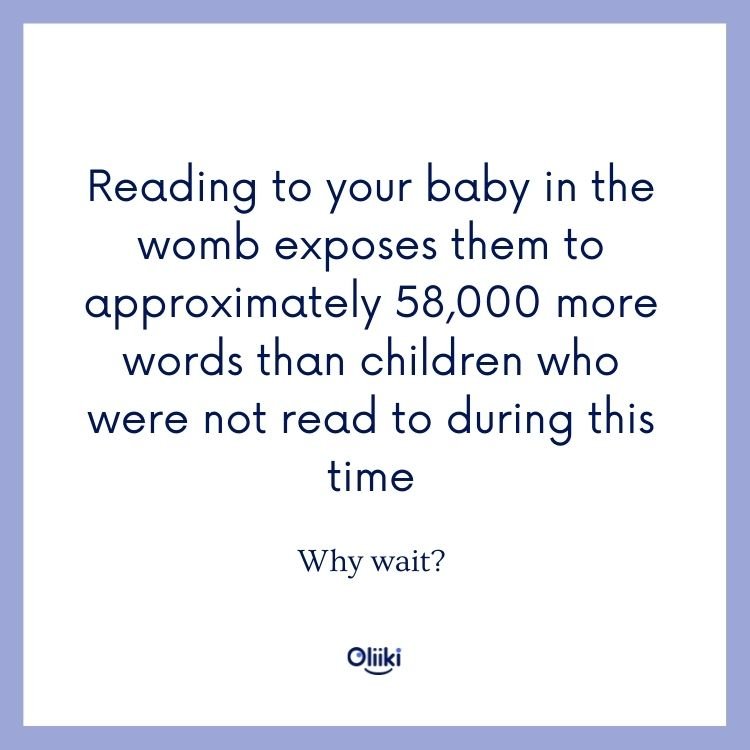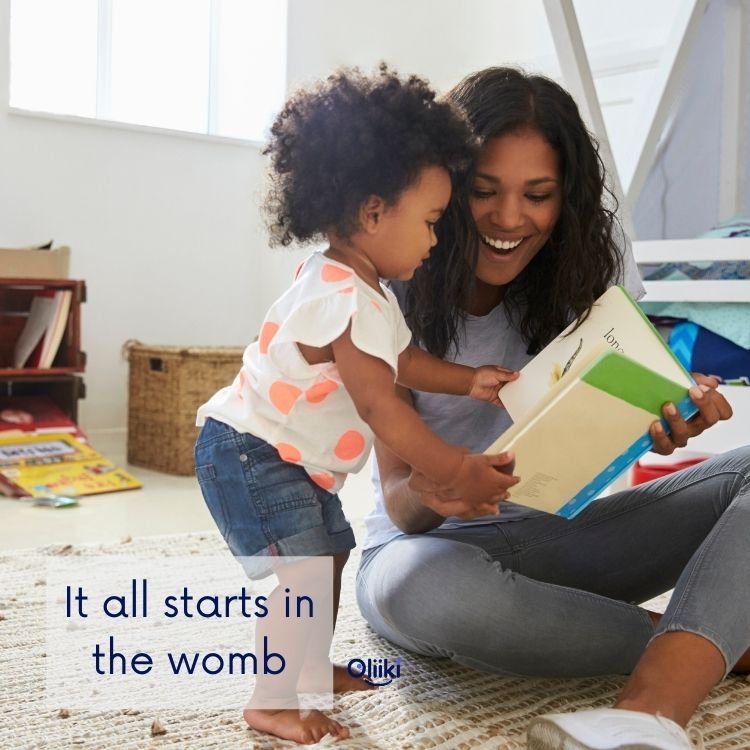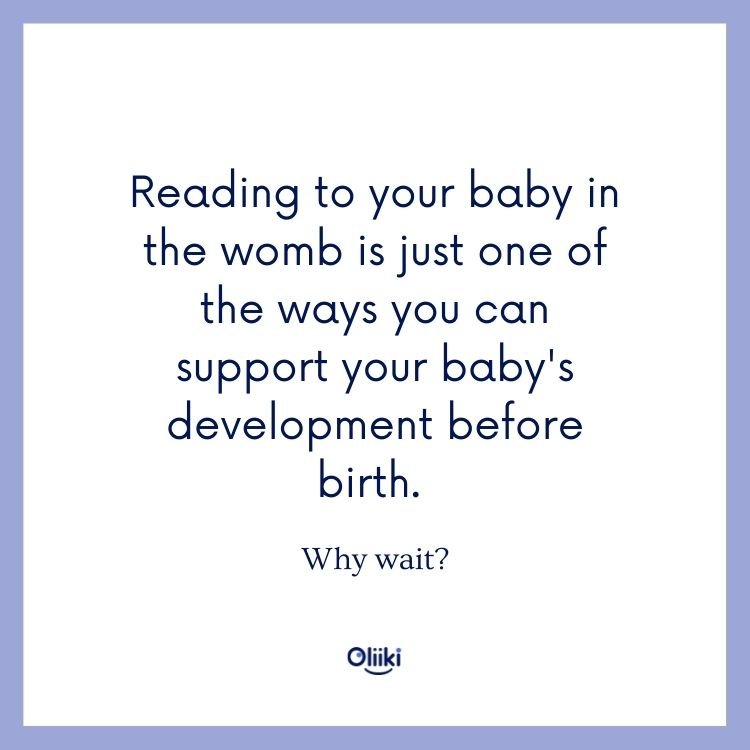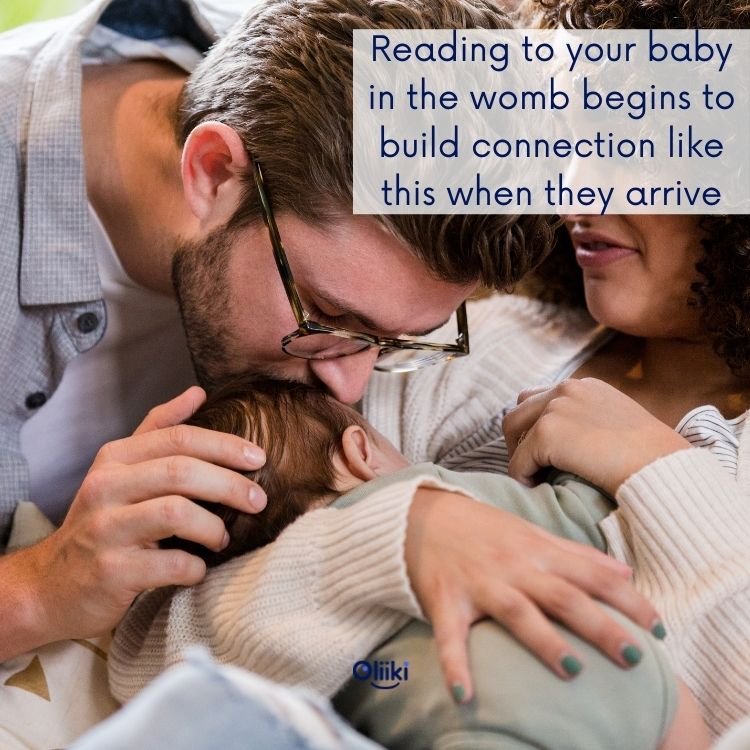6 ways reading to your baby bump helps their development
It always felt a bit silly reading to my baby bump while I was pregnant, but if I had known then what I know now, I’d have done it so much more!
Here’s why you should read to your baby in the womb:
First, up your baby would be exposed to approximately an extra 58,000 words by the time they were 5 years old. Babies who are read to every day are exposed to around 78,000 words each year. A child who is read to from birth to the age of 5 is exposed to approximately 1.4 million words. The more words your baby hears, the better they will do academically and emotionally.
You become calm and relaxed. When you read, you tend to either sit or lie down quietly. This calms you. As you calm, you breathe deeper and you relax. This provides your baby with more oxygen and a gentle environment to rest and grow in. It also allows their heartbeat to slow. When you are relaxed, so is your baby, and that’s great for development!
Your partner can connect with your baby. Reading aloud to your bump is a brilliant way to include your partner. Sit back, let your partner snuggle in, put their hand on your bump and read. You’ll get a well-deserved break and your partner will be building an all-important connection to your developing baby.
Your baby learns what you sound like. Research shows that babies can hear muffled sounds in the womb. Over time these become familiar sounds and comfort your baby once they’re born. Building secure connections with your baby helps them reach their full potential. As you read, they are listening and learning all about you.
You build a routine of reading. Developing routines around reading helps your baby become a reader. Becoming a reader starts with developing a love of reading. That love of reading comes from building an environment of joy around books.
Reading builds brain connections! Exposure to different sounds and experiences stimulates your baby’s brain to build connections. The more experiences they have, the more connections they build. So, reading to your baby in the womb is actually building their brain!
When should I start reading to my baby in the womb?
From 25 weeks, your baby will be developed enough to be hearing muffled sounds that happen around you. But why wait until then? Although your baby might not be able to hear you before 25 weeks, they can feel the calmness and the connection that settling down together gives them. So start early and read often, right up until the day you give birth!
“The more words your baby hears, the better they will do academically, emotionally and in life. ”
What should I read to my baby while they’re in the womb?
Anything you like! If you love War and Peace, read that! Or perhaps you might want to try something lighter. It doesn’t matter what the reading material is, just make sure that you enjoy the time you spend reading.
You might take this time to find some books to read to your baby when they have been born. It’s also a great time to practice reading aloud and perhaps adding funny voices for the characters and enjoy the rhythm and rhyme the books have. It might have been a while since you last read a children’s book out loud, so settle back and have some fun!
Reading out loud to your bump is only one of the ways to help your baby’s development while they are still in the womb. The Oliiki app gives you over 1000 more activities to support your baby’s development and your parenting journey. Download it today for more support throughout your pregnancy and beyond.








